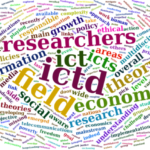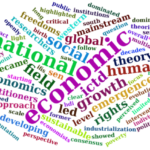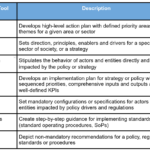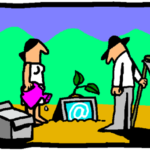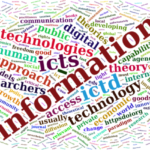Here are some additional inputs on the above, in response to comments provided by the Director of KM.
1. Let me start by saying that this is not really a NEW area for of work for UNDP. We have been “pushing” this, with a focus on the programme side, from the DGG/ICTD/egov side for the last couple of years. We are in fact funding a few m-governance projects with DG TTFs. One of the projects is in partnership with UNICEF.
2. We recently completed a mapping of UNDP programmes on ICTD and e-gov and we only found about 10 projects that are using mobile technologies (out of 230; see https://undp.unteamworks.org/file/69063/view/69063) 5 of which we are funding from DGG. So there is not much out there on the UNDP side. We also created a m-governance portal on the wiki over 18 months ago and commissioned 4 cases studies. You can find those here:
http://ictdegov.org/undpwiki/Portal_MGovernance
We are in te process of updating the information found in the site.
3. The fact that most UNDAF’s and CCAs do not explicitly include ICTs and new technologies does make things a bit more complicated. We are actually working as part of the UN Group on the Information Society (UNGIS, a follow-up to WSIS) to try and change this, But is is more medium to long-term.
4. Internal documents such as the MAF and most fo the MDG stuff does not really make the connection to mobile technologies (MTs). There is at least some stuff on e-governance which can help open a few doors. I was also able to add a few references to MTs in the latest draft of the concept note for MDG 5. Let me add here that we are developing a mobile application called mMDGs which will allow people with smartphone to carry MDG information in their pockets, etc. and we are planning to develop an SMS gateway to provide access to all others (or most of the developing
world people). We should do the same for the HDI…
5. So yes, UNDP is a bit behind other, in particular UNICEF who is doing lots of stuff on the ground (unlike the WB which you also quote). And UNICEf has piggy-backed on this work to also now start supporting a few of the corporate IT functions. I think this sequencing is important if we are to make a difference in developing countries.
6. Since 2009, I have been attending several MT gatherings which as you might now are now happening almost on a weekly basis. I attended one in Maputo, Mozambique in March 2010 and was impressed by the the amount of work that NGOs and small entrepreneurs are doing on the ground. Stuff like Frontline SMS and Ushahidi have been o the ground for at least three years, And there are many more. As you are aware, UNICEF’s own RapidSMS is just an open source version of Frontline SMS. You might want to check mobileactive.org which has been around for at least 3
years. I met the founder of this portal 2 years ago. Note that most work with SMS, not IP or smartphones…
7. The reference to Facebook and Twitter was made in the context of Tunisia and Egypt where the media has overestimate the role of social networks and totally underestimated the use of basic MTs to communicate among protesters and organizers. I believe there is a “coolness” factor here that biases mainstream media as, after all, using SMS is not news…
8. I also think it is important to highlight UNDP’s role (and specially BDP’s) as providers of policies to out client governments. This is essential for at least two reasons: 1) to convince policy makers to use ICTs and MTs strategically to address critical development gaps (not all but those that can benefit from its use; let us avoid the panacea argument here); 2) to mainstream all the work that many NGOs and small entrepreneurs are doing in m-development and scale ti to to national levels. I think UNDP can play a critical role here while at the same time partnering with those who are on the ground doing the real work.
All for now.
Cheers, Raúl

